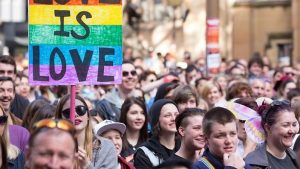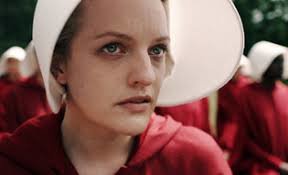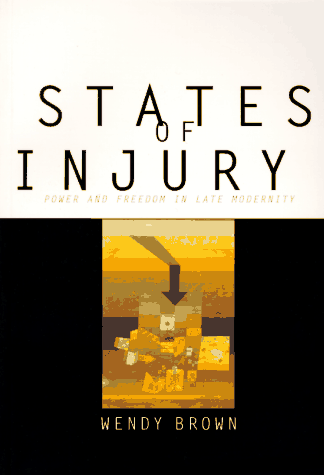 It’s official. Australians have voted in favour of marriage equality!
It’s official. Australians have voted in favour of marriage equality!
The yes campaign won a huge victory today, with Australians voting 61.6 – 38.4% in favour of passing legislation to legalise same-sex marriage. A total of 7,817,247 people voted yes.
There has been a lot of negative feelings about this process. Large marriage equality organisations and most prominent marriage advocates opposed to use of any form of public vote to help decide this issue. It has certainly been a tough process for many, and one that many do not want replicated ever again. It is one many would simply like to forget.
But as we come to the end of this process, it’s worth reflecting on this moment for exactly what it is: a huge victory.
Let us think about the significance of what just happened. Over seven million people voted in favour of equality for lesbian and gay Australians. That’s millions of people who ignored the fear mongering of conservatives, and took an active step to vote in favour of equality. People voted in favour across the country — from small towns to large cities, from poor areas to rich. Every state and territory voted yes, while 133 of Australia’s 150 electorates returned yes votes.
While in some ways this vote means very little in legal consequences, this is actually very important. This is a sign of huge changes that have occurred in our community. It’s easy to forget that it was only just over two decades ago that Tasmania became the last state in the country to decriminalise homosexual activity. Now, Tasmania voted in favour of marriage equality legislation 63.6 – 36.4%. I cannot think of any other social issue that has seen such a significant shift in such a short time.
For those of us who are concerned about the impacts this vote have had on vulnerable queer people this is especially important. Growing up queer can be an isolating thing, particularly for those in rural and remote communities. It can often feel like you have supporters nowhere. Now however we have the first ever real indication of the real level of support that queer people have in our community. Of course a vote for same-sex marriage does not mean someone is not a homophobe, but it is a strong start. Now through this campaign, and through this successful vote, we’ve seen millions of people publicly voice a growing acceptance of LGBTIQ people. In Ireland this resulted in a sharp spike in numbers of young people coming out, and we can expect such an outcome in Australia as well.
It is a real possibility, in fact almost a certain potential, that looking back on this campaign many will see it as a difficult moment we should all want to forget. This could easily be seen as something that above all else highlighted the intense bigotry queer people face. Of course that bigotry is still there, and we saw it sharply through this process. But what we also saw were acts of kindness, solidarity and justice — ones that clearly outweighed their counterpart.
It is these acts, and this vote, that we should remember. They are acts of a changing society — one that is clearly becoming more embracing of LGBTIQ people, and more willing to publicly voice that.
Yes this process was hard. But, change is hard. It requires struggle. When you get to the end of the struggle, and you win, you have to celebrate, not lament how hard it was to get here. Let’s do that today!

 This is a talk I did as part of ACT Fair Day, in conjunction with
This is a talk I did as part of ACT Fair Day, in conjunction with  This talk was presented at Queer Stories in August. Queer Stories is a monthly queer story-telling event held at Giant Dwarf in Redfern, Sydney every month. The event is really great, and I encourage everyone to head along.
This talk was presented at Queer Stories in August. Queer Stories is a monthly queer story-telling event held at Giant Dwarf in Redfern, Sydney every month. The event is really great, and I encourage everyone to head along.  Earlier this week the vote yes campaign received some amazing news. New polling from Essential Research highlighted a significant enthusiasm gap between yes and no voters.
Earlier this week the vote yes campaign received some amazing news. New polling from Essential Research highlighted a significant enthusiasm gap between yes and no voters.  “Stop the fags”
“Stop the fags” Last week the TV adaptation of The Handmaid’s Tale was released on SBS. In doing so the show has revilatised Margaret Atwood’s classic 1985 novel, being considered in many ways a prescient story to tell in our current political climate.
Last week the TV adaptation of The Handmaid’s Tale was released on SBS. In doing so the show has revilatised Margaret Atwood’s classic 1985 novel, being considered in many ways a prescient story to tell in our current political climate. Over recent times, particularly since the plebiscite and Safe Schools debates within Australia, I have noticed a strong narrative of ‘suffering’ and ‘vulnerability’ within large parts of the queer community. Mainstream queer discourse has increasingly turned towards defining queer people as ‘vulnerable’, ones who have ‘suffered’ a great ‘injury’, and whose main quest is for those injuries to be fixed in some way. I have spoken about this issue in
Over recent times, particularly since the plebiscite and Safe Schools debates within Australia, I have noticed a strong narrative of ‘suffering’ and ‘vulnerability’ within large parts of the queer community. Mainstream queer discourse has increasingly turned towards defining queer people as ‘vulnerable’, ones who have ‘suffered’ a great ‘injury’, and whose main quest is for those injuries to be fixed in some way. I have spoken about this issue in  This lecture was given to the GEND1001 class at the Australian National University in
This lecture was given to the GEND1001 class at the Australian National University in  Check out my latest newsletter below.
Check out my latest newsletter below.  This speech was presented as part of the Noted Festival Event on Thursday the 5th of May: ‘AIDS Action Council presents Gay Sex is Fun’.
This speech was presented as part of the Noted Festival Event on Thursday the 5th of May: ‘AIDS Action Council presents Gay Sex is Fun’.